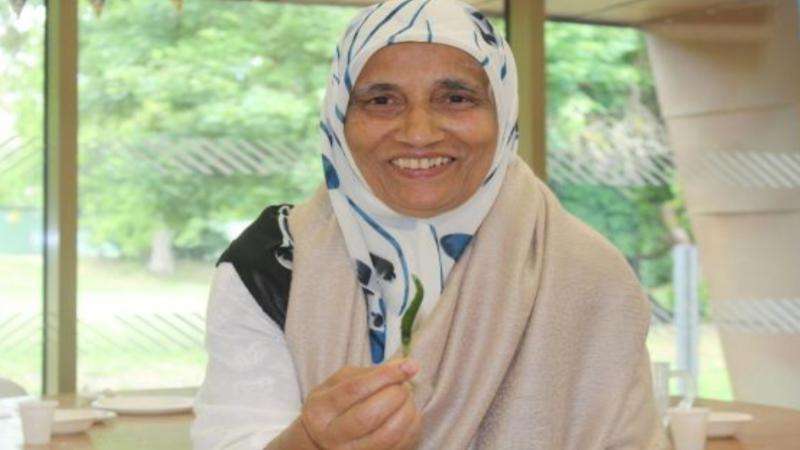A formidable figure within Colchester’s Muslim and Bangladeshi community, 74-year-old Jahanara Loqueman, has been honoured with a compassionate community award for her pivotal work with St Helena Hospice. Her contributions, particularly in establishing cultural sensitivities for Muslim burials, stem from a deeply personal journey of grief and a lifelong commitment to community support and mental health advocacy.
Ms. Loqueman, who arrived in Colchester in 1965 as one of the first Bangladeshi women in the town, joining her husband to work at his restaurant, has dedicated years to bridging cultural gaps in critical areas of life and death. Her transformative work began after a profound personal tragedy in 2000, the death of her daughter. This devastating loss led to a severe impact on her health, as she struggled to eat or drink, losing significant weight.
"When I lost my daughter, my own personal experience... I found my community helped me a lot, but I never received any support from anybody professionally," Ms. Loqueman shared. This painful realisation spurred her to found the Bangladeshi Women’s Association in Essex (BWAE), an organisation dedicated to providing the support she wished she had received.
Under her guidance and with the directorship of Salma Ahmed, the BWAE has made significant strides in mental health advocacy within the community. Ms. Ahmed acknowledges that while mental health is still a "taboo subject" in many discussions, progress has been made, particularly with the availability of more specialist Muslim and Asian counsellors. "In our group, we have done some projects about mental health, we’ve spoken about the taboo of the language. It’s a subject we speak about often," Ms. Ahmed stated, highlighting the association's proactive approach.
The BWAE has also extended its vital work to demystify dying and end-of-life care, forging a strong partnership with Colchester-based St Helena Hospice. Ms. Loqueman recounted her own initial misconceptions about hospices, believing them to be solely places where people go to die. "If I had known St Helena before my husband died, I would not have taken my husband there," she admitted, reflecting on her past views.
However, her collaboration with the hospice, and her direct input to managing director Greg Cooper, has led to significant, culturally sensitive changes. St Helena Hospice now offers respite care and counselling, services Ms. Loqueman was unaware of previously. Crucially, a dedicated prayer facility has been established, meticulously designed to respect Islamic tenets by not featuring any real images. Concerns over Muslim women being attended by male doctors, particularly in end-of-life care, have also been addressed, with Ms. Loqueman drawing on her own social care career, including time in multi-cultural Tower Hamlets, to foster understanding. She noted, "They feel if you are a doctor and I am a lady... but in a life and death situation, 'yes, you can look after me'."
Ms. Ahmed underscored the deep-rooted family involvement in Muslim end-of-life care and burial procedures. "Within our culture, our religion, it [death] is deeply discussed and one of the unique things I find personally is that we depend on our families so much even in their end-of-life care," she explained. "You are looked after by family, you want your family close... even right to the end of the whole burial and procedures after it is very much focused around what the family is doing. The family are very much involved in that decision making process as well. Our procedures are actually quite straightforward." The current focus for the BWAE is to encourage open conversations with 'elders' about their end-of-life wishes.
Both the hospice and the BWAE members have mutually benefited from sharing their lived experiences, fostering a greater understanding of diverse needs. "We told Greg you have to create an atmosphere like here [BWAE] and we have done compassionate care and end-of-life six-week training with them," Ms. Loqueman added.
In a broader societal context, Ms. Ahmed observed increasing isolation across communities, particularly in Western societies where the traditional family support networks may not be as strong. Ms. Loqueman fondly likened her community's close-knit structure to a "Victorian era" family, where communal living and shared experiences create an atmosphere that combats social isolation. Reflecting on her profound impact, Ms. Loqueman concluded, "If my husband had been alive, and having seen this club, he really would have been putting me a crown down on my head." Her dedication continues to illuminate paths to compassionate care and community well-being in Colchester.








.svg)

_1.jpg)
_1.jpg)
_3.jpg)
_3.jpg)